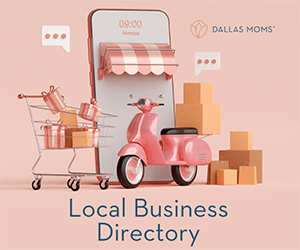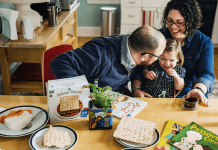“I know I should be better about keeping a budget but I don’t even know where to start. and I don’t want to spend a lot of time on it.”
Stop thinking of it as something you have to do all at once. If building spreadsheets and digging through old statements and receipts is your jam, by all means, go for it. For the rest of us, I recommend beginning on the first day of the upcoming month. It doesn’t matter what month that will be or which holidays or celebrations are coming. Don’t let that be your excuse. Just start tracking on the first of the month.
List all your expenses.
Bills, gas, groceries, donations, subscriptions, entertainment, tuition, clubs, etc. Keep receipts in an envelope in your wallet or purse so everything is accounted for. My husband uses an app called Pocket Expense 6 rather than collecting receipts. There are loads of expense tracker apps out there. I’m a paper-and-pen person so I use a physical budget planner and write everything down.
Track your expenses for two to three months to get a general idea of what your monthly output looks like. Having at least two months of your budget tracked is a great start and will have you in much better shape for creating a budget that works. There may be items that aren’t on your radar such as property taxes, vehicle registration renewal, summer camp, doctor or dental visits, etc. As you track your money each month, your annual budget will begin to take shape and show you where all the money goes throughout the year. This makes it easier to plan ahead.
The most important thing is to be absolutely honest during this process. Don’t worry if there were some unusual expenses. Track everything. It’s all part of the process. Now you can see where your money really goes. Not where you think it goes but where it actually goes.
“Okay… So I tracked my spending for the last two months and now I’m panicking!”
Do not panic.
Seeing the truth of your budget isn’t meant to shame you. It’s meant to help you. This is your opportunity to create a budget that works for you and your family.
I’m not a big spender but when I first started keeping a budget planner, I was appalled by what it revealed. I don’t like to shop. I know. I’m weird. We don’t go to restaurants very often. I was making lots of small purchases. Those were keeping me from making progress paying down debt. We had several subscriptions that no longer served us. Magazines were piling up unread. I canceled a few subscription boxes and I didn’t miss them at all when they stopped coming. Now we make more strategic shopping lists.
Be strategic and flexible.
Think about where you want to make changes. Different strategies work for different families. I’m no financial planner or expert. What has worked for me is knowing where my money is going and checking my budget daily. That’s right. I check my budget planner every day to see what bills and expenses are coming up in the following weeks. This allows me to prioritize how to use the money that is left.
If you have debt to deal with, there are many schools of thought on how to attack it: make snowball payments, cut out everything that isn’t essential, use cash envelopes as a strict allowance, etc. If you are trying to save for a house or a car or a big vacation, keeping a budget will allow you to stay focused without pushing your goal further into the future by blowing your budget on your Starbucks addiction or trips to Target (two of my favorite ways to overspend).
When your budget is organized, other aspects of your life start to fall in line.














Hi we’re both really trying to get out of our debt. And then start building up wealth for our future. And then for retirement one day.